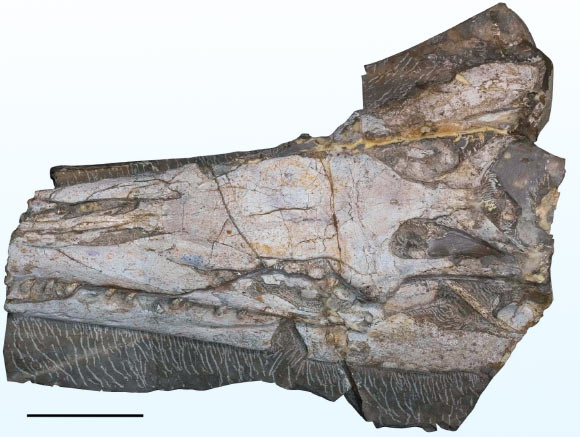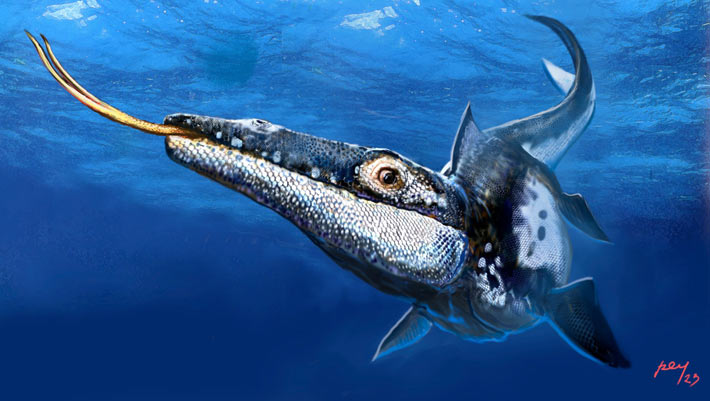Paleontologists have identified a new species of plioplatecarpine mosasaur from an almost complete skull found in the Agua Nueva Formation, Mexico.
The newly-identified mosasaur species lived in what is now Mexico approximately 90 million years ago (Turonian age of the Cretaceous period).
Dubbed Yaguarasaurus regiomontanus, this marine reptile had a long, slender rostrum and jaws with small teeth.
The ancient creature was roughly 5.2 m (17 feet) in length, making it one of the earliest known large mosasaurs.
Yaguarasaurus regiomontanus is a member of Mosasauridae, a group of extinct, large marine reptiles from the Late Cretaceous epoch.
“Mosasaurids were fully aquatic, predominantly marine large predatory squamates that were present worldwide in the oceans in the Late Cretaceous,” said Museo del Desierto paleontologist Hector Rivera-Sylva and his colleagues.
“Over 40 genera are recognized, the largest specimens reaching a length of 12 m (39.3 feet).”
“The phylogenetic relationships within Mosasauridae are still contested,” they noted.
“Mosasauridae comprise at least four subfamilies: Halisaurinae, Mosasaurinae, Tylosaurinae, and Plioplatecarpinae, although the details of mosasaur relationships remain controversial and a topic of ongoing study.”
“The new mosasaur specimen is referred to Yaguarasaurus, a genus within Plioplatecarpinae.”

An almost complete and well-preserved skull of Yaguarasaurus regiomontanus was discovered southwest of Vallecillo in the northeastern Mexico state of Nuevo Leon, about 80 km north of Monterrey.
The material was collected from a laminated limestone layer of the upper member of the Agua Nueva Formation.
This limestone is widely known for its abundance of exquisitely preserved fishes and marine reptiles, and formed in an open shelf environment under anoxic conditions.
“This is the first report of Yaguarasaurus from Mexico and the most complete of the Americas,” the paleontologists said.
Along several other…
Read the full article here

